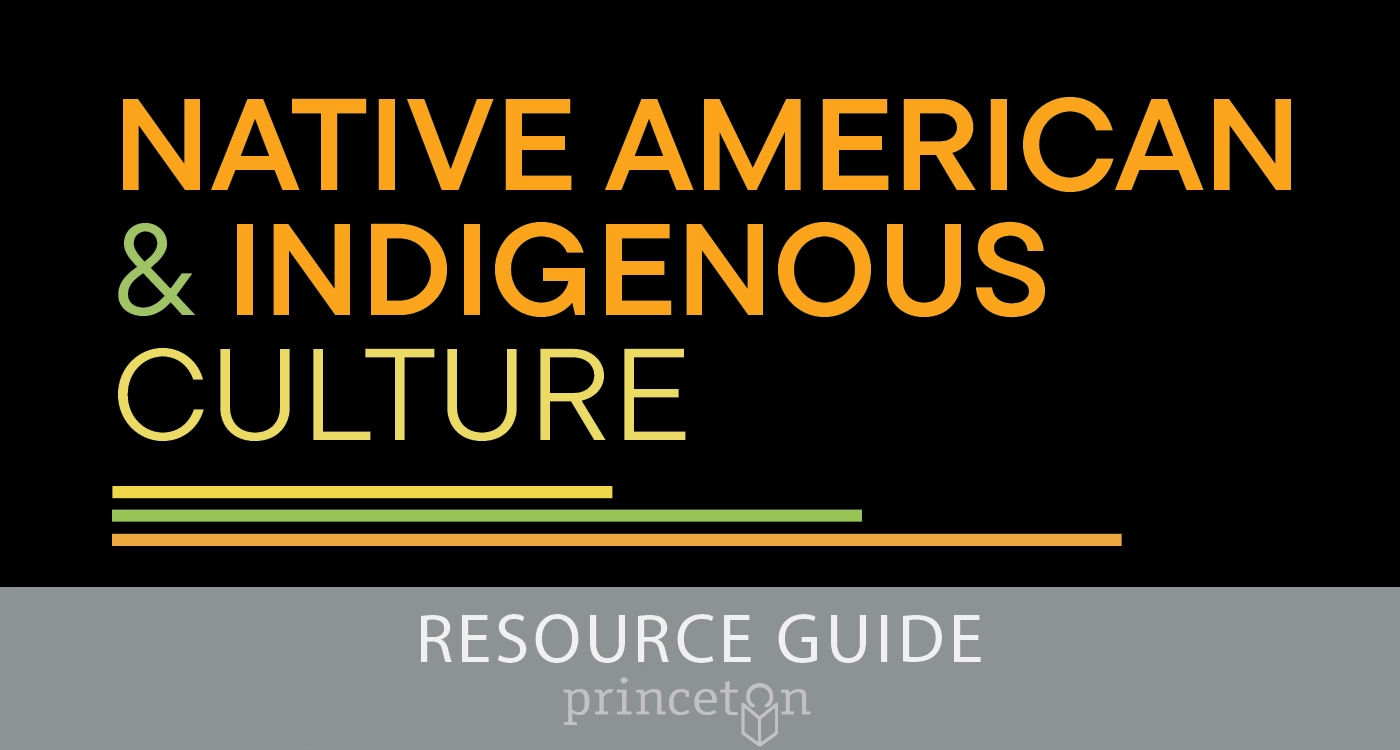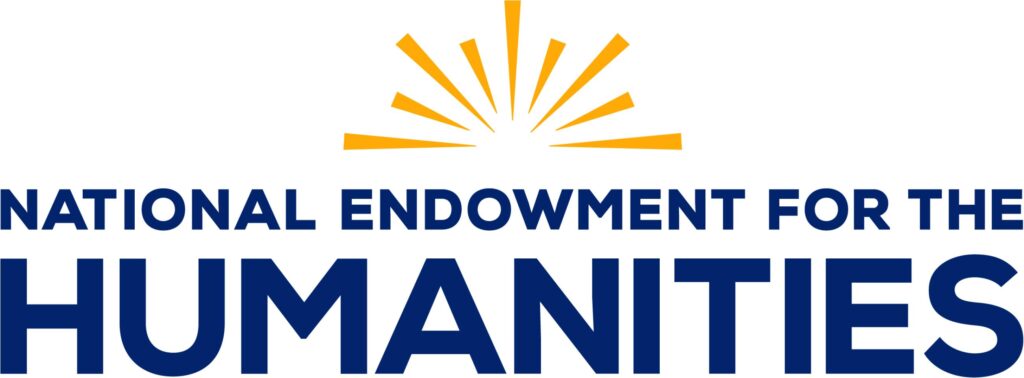
#overview
Overview
This guide offers a variety of starting points for research on Native American & Indigenous culture. Indigenous peoples—specifically, the Lenape (also called the Lunaape, Leni Lenape, Lenni Lenape, or Delaware)—resided on the land now known as New Jersey long before Europeans arrived. Three state–recognized tribes continue to live in New Jersey: the Nanticoke Lenni-Lenape Tribal Nation, Powhatan Renape Nation, and Ramapough Lenape Nation. In addition, many people in New Jersey identify as inter-tribal or members of other Indigenous nations. As of 2020, more than 53,000 people in New Jersey identify as American Indian or Alaska Native. There are also several federally recognized tribes, displaced and now based elsewhere in North America, for whom present-day New Jersey is an ancestral homeland. These include the Delaware Nation, Delaware Tribe of Indians, and Stockbridge-Munsee Community Band of Mohican Indians.
A search for relevant resources in the library’s catalog is complicated, because searching one general term such as “Native American” yields different results from another such term, like “Indigenous.” Both of these search terms deliver results different than what searching specific areas of Indigenous or Native American culture brings up. Kanopy offers streaming video, audio and film on a broad variety of topics and themes, including areas such as Indigenous American cultures and identities.
This guide brings together a curated collection of books, websites, films, educator resources and past programs. It aims to facilitate the same kind of discoveries as may be found in the library’s physical space. It also provides a brief discussion of Native American Heritage Month as a time when the library places a special emphasis on Hispanic and Latin American culture in its events and collections.
A note on terminology: While both “Native American” and “American Indian” remain widely accepted terms, it is generally preferred to use the specific tribal nation when referring to Indigenous people. “Indigenous” or “Indigenous American” can also be adopted as general terms with increasingly more currency today. To learn more, see the Smithsonian Institution’s National Museum of the American Indian’s statement on terminology from their FAQ page.
#read
Read about Indigenous History and Culture
See below for a list of nonfiction resources about Native American history and culture. You’ll find scholarship, memoirs, and reference books.
Below is a list of fiction geared toward adults, including novels and poetry, related to Native American history and culture.
And for teens and kids, you’ll find lists of books that highlight Native American history, culture and experiences.
#learn
Learn
There are also a number of online sources related to Native American heritage. These include:
- Recommended books from the First Nations Development Institute
- “All My Relations,” a podcast that explores varied issues “facing Native peoples today, bringing in guests from all over Indian Country to offer perspectives and stories”
- Online exhibitions from the National Museum of the American Indian
- The special exhibitions of the National Museum of the American Indian in New York, NY
- Recorded sessions from the National Council on Public History (descriptions here)
- Primary sources, online exhibitions, articles and more from the National Archives and Records Administration
- A blog entry from Princeton University’s Public Policy Papers related to the Indigenous Child Welfare Act (1978)
- The Lenape Talking Dictionary: language resources from the Delaware Tribe of Indians
#educators
Resources for Educators
See the materials below for potential starting points for engaging learners. You’ll find lesson plans, digital tools, maps, guides on best practices and terminology and more.
- Teaching and learning FAQs from the National Museum of the American Indian
- Native Knowledge 360° Education Initiative, a project of the National Museum of the American Indian
- Lesson plans and other resources from the National Museum of the American Indian
- Lessons, books and films from the Zinn Education Project
- “10 Tips to Decolonize Your Classroom” from Teaching Native Histories, a project of the University of Massachusetts Amherst
- Teacher’s guide from the National Endowment for the Humanities
- “Lessons Learned in Teaching Native American History” from Edutopia
- “Invasion of America” map showing the seizure of Indigenous land created by eHistory.org, a project of the University of Georgia
- “Native Land Digital,” an Indigenous-led nonprofit organization hosting an interactive map showing past and present Indigenous territories and other resources
- “Best Practice When Teaching about Native People” from the Norman B. Leventhal Map & Education Center at the Boston Public Library
- “Tips for Teaching about Native Peoples” by the Burke Museum
#programs
Past Programs
In 2024 the library and its partners hosted a panel from the Fourth Annual Munsee Language & History Symposium with the year’s theme being “Widening the Circle: Lunaape Land, Language, and History,” Panelists John Moses (Kanyen’kehaka and Delaware, Six Nations / Canadian Museum of History), Mary Jane Logan McCallum (Munsee-Delaware Nation / University of Winnipeg), and Jo Ann Gardner Schedler (Stockbridge Munsee Band of Mohican Indians) spoke on the significance of the Wampum Belt, which has often stood historically as a cultural object that marked political rights, especially treaty agreements between Indigenous tribes. This symposium provided an opportunity for interested attendees to understand and appreciate the ancestral traditions, long lasting legacy, and keen relationships that continue to exist between Lunaapeewak (Lunaape people) from Munsee-speaking tribal nations. Sponsored by the Native American and Indigenous Studies Initiative at Princeton University; Land, Language, and Art: A Humanities Council Global Initiative; the Program for Community-Engaged Scholarship at Princeton university; the Princeton Public Library, and the School of Historical Studies at the Institute for Advanced Study.
For a virtual program in 2023 Camilla Townsend, Board of Governors Distinguished Professor of History at Rutgers University-New Brunswick, and Nicky Kay Michael (Delaware), interim president of Bacone College in Muskogee, Oklahoma and executive director of Indigenous studies and curriculum, presented their new book, “On the Turtle’s Back: Stories the Lenape Told their Grandchildren,” the first collection of Lenape folklore. originally compiled by anthropologist M. R. Harrington over a century ago, but never published until now. In it, the Delaware share their cherished tales about the world’s creation, epic heroes, and ordinary human foibles. It features stories told to Harrington by two Lenape couples, Julius and Minnie Fouts and Charles and Susan Elkhair, who sought to officially record their legends before their language and cultural traditions died out. More recent interviews with Lenape elders are also included, as their reflections on hearing these stories as children speak to the status of the tribe and its culture today.
In April 2023 Chief Vincent Mann will be joined by Professor Jack Tchen and Dr. Anita Bakshi to talk about The Ramapough and the Ringwood Mines Superfund site. Professor Jack Tchen of Rutgers University Newark shared a short history of the Turtle Clan in our region, and then Chief Vincent Mann of the Turtle Clan and members of the project team, including Dr. Anita Bakshi (team lead) shared elements of the exhibit and excerpts of the film, “Meaning of the Seed.” Finally, Chief Mann shared what the Turtle Clan is doing now to heal from this decades-long disruption to the lives of clan members. The Rutgers team, led by project director Dr. Anita Bakshi, worked with Turtle Clan members – many of whom live on an active Superfund site – to create an array of materials, including the book “Our Land, Our Stories” book; the documentary film “The Meaning of the Seed”; traveling exhibits; short video projects for YouTube and social media platforms; and a digital exhibit for Rutgers University Libraries. This recording is presented in partnership by Princeton Public Library; The Seed Farm; The Land, Language, and Art Global Initiative; School of Public and International Affairs in New Jersey; and The Watershed Institute.
Younger viewers and their caregivers can find archived storytimes in the Virtual Story Room, which celebrate and share books created by Native American authors and illustrators in a series of nine Storytime Shorts that can be viewed on the library’s YouTube channel.
#month
Native American Heritage Month
November is National Native American Heritage Month. This celebratory heritage month, recognized under other appellations, including American Indian and Alaska Native Heritage Month, offers an opportunity for the public to explore the history and culture of Indigenous peoples with ties to the land now occupied by the United States. With respect for the diverse cultures, ancestry, histories, and sovereignty Indigenous people in our community, in North America, and throughout the world, the library aims to integrate topics related to Indigenous peoples into programming throughout the year, and this heritage month serves as a chance to focus our efforts. A number of programs and initiatives this month emphasize Indigenous peoples and their cultures for this reason.

Content made possible with support from the National Endowment for the Humanities: Any views, findings, conclusions or recommendations expressed in this resource does not necessarily represent those of the National Endowment for the Humanities.

